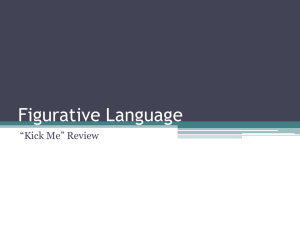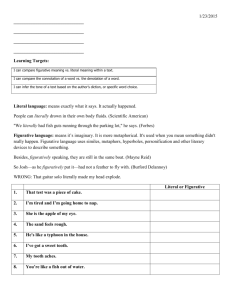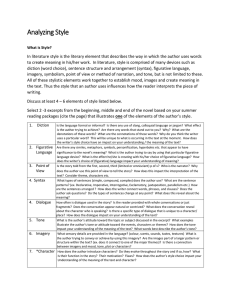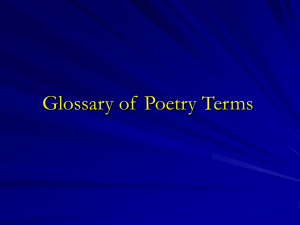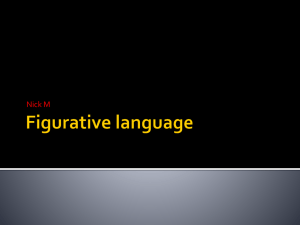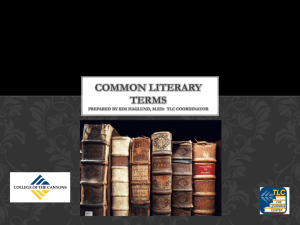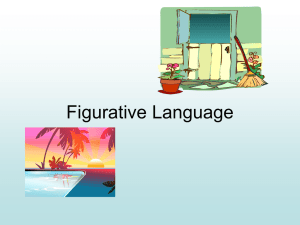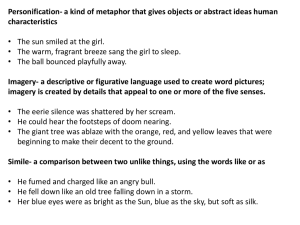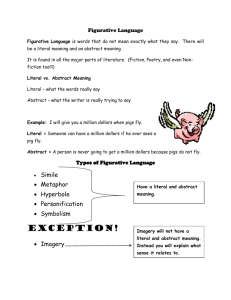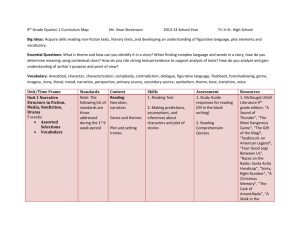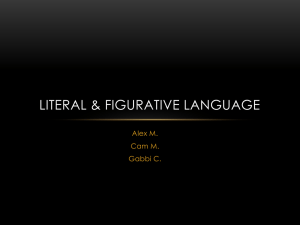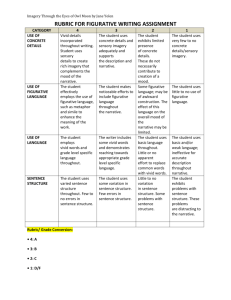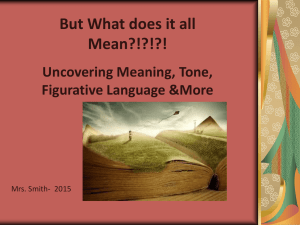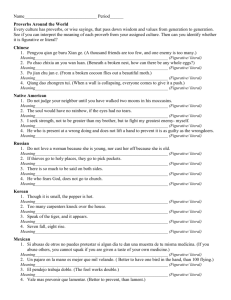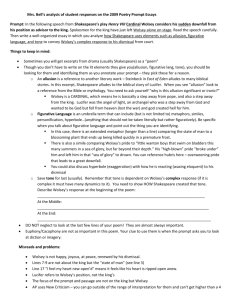WOW #1 Review
advertisement
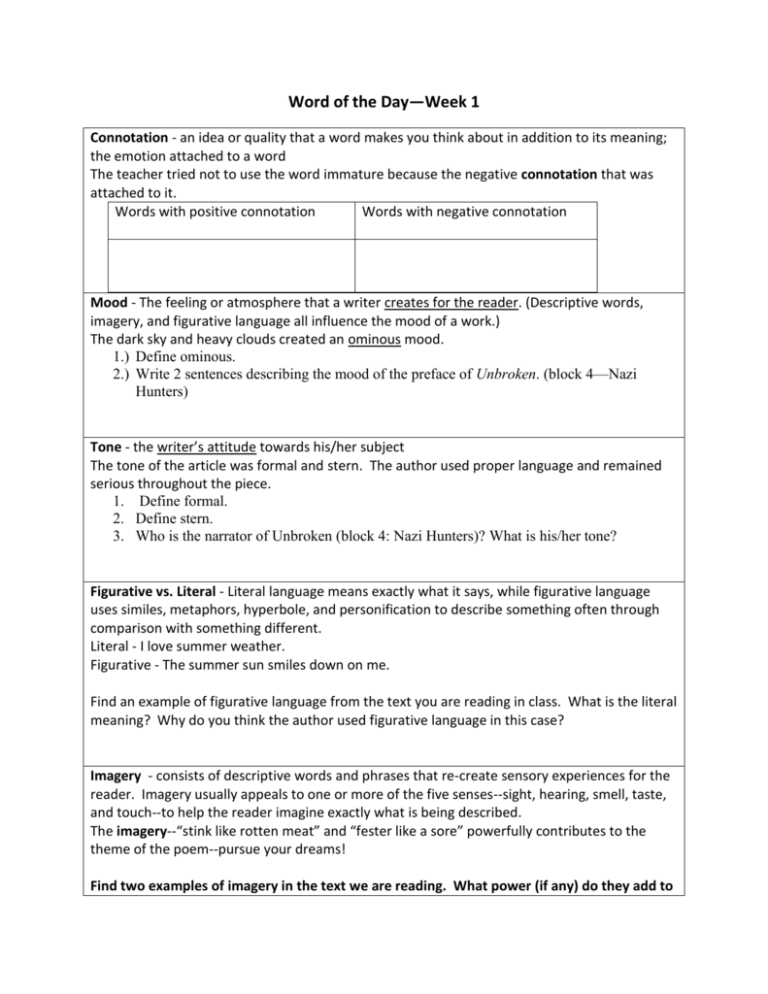
Word of the Day—Week 1 Connotation - an idea or quality that a word makes you think about in addition to its meaning; the emotion attached to a word The teacher tried not to use the word immature because the negative connotation that was attached to it. Words with positive connotation Words with negative connotation Mood - The feeling or atmosphere that a writer creates for the reader. (Descriptive words, imagery, and figurative language all influence the mood of a work.) The dark sky and heavy clouds created an ominous mood. 1.) Define ominous. 2.) Write 2 sentences describing the mood of the preface of Unbroken. (block 4—Nazi Hunters) Tone - the writer’s attitude towards his/her subject The tone of the article was formal and stern. The author used proper language and remained serious throughout the piece. 1. Define formal. 2. Define stern. 3. Who is the narrator of Unbroken (block 4: Nazi Hunters)? What is his/her tone? Figurative vs. Literal - Literal language means exactly what it says, while figurative language uses similes, metaphors, hyperbole, and personification to describe something often through comparison with something different. Literal - I love summer weather. Figurative - The summer sun smiles down on me. Find an example of figurative language from the text you are reading in class. What is the literal meaning? Why do you think the author used figurative language in this case? Imagery - consists of descriptive words and phrases that re-create sensory experiences for the reader. Imagery usually appeals to one or more of the five senses--sight, hearing, smell, taste, and touch--to help the reader imagine exactly what is being described. The imagery--“stink like rotten meat” and “fester like a sore” powerfully contributes to the theme of the poem--pursue your dreams! Find two examples of imagery in the text we are reading. What power (if any) do they add to the text?
